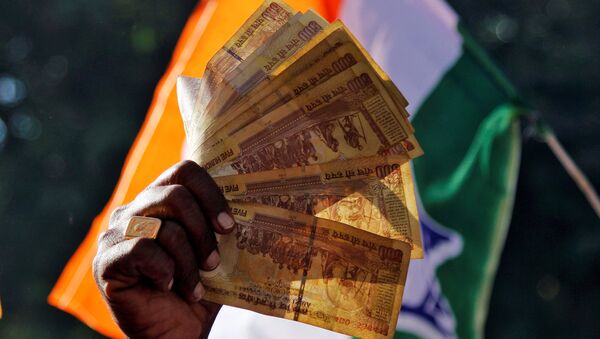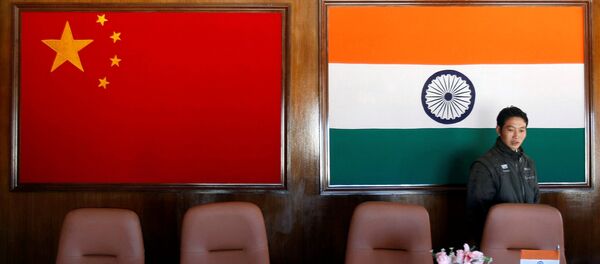Kristian Rouz — India's top Reserve Bank official says political pressure and governmental interventions with central banks are unacceptable as such measures might undermine the efficiency of monetary policies and jeopardize the financial stability of any given country. The official's comments come ahead of India's elections next year.
Reserve Bank of India's (RBI) Deputy Governor Viral Acharya said national governments tend to focus on short-term economic goals in an effort to boost their popularity amongst voters. Meanwhile, central banks, the official stressed, are conducting longer-term policies, rendering political meddling with central banking potentially harmful to the national economy.
"The risks of undermining the central bank's independence are potentially catastrophic," Acharya said. He stressed governmental interference could produce a "crisis of confidence in capital markets that are tapped by governments and others in the economy."
India's financial markets have been on the retreat over the past few weeks, while the nation's economic growth prospects have been put into doubt by the recent turmoil across emerging markets. Government officials are now worried all these could bring the opposition into power next May.
READ MORE: Bitcoin ATM Seized: India Sees Crypto Crackdown Amid Legal Gray Area
However, Acharya urged more efforts to ensuring the RBI's complete independence from political pressure, biases, and near-term considerations.
"Governments that do not respect central bank independence will sooner or later incur the wrath of financial markets, ignite economic fire, and come to rue that day they undermined an important regulatory institution," Acharya said.
Tensions between the RBI and the government flared up after the central bank singled out 11 state-controlled banks as not meeting its lending criteria. The RBI cited an excessive volume of non-performing loans on these banks' balance sheets as the reason to bar the lenders from issuing new loans.
Acharya also suggested his comments were not limited exclusively to the RBI, and stressed any central bank in any country must be fully independent for the sake of economic stability in that country, and a greater sustainability of the global financial system.
Additionally, Eurozone officials have reportedly been pressuring the European Central Bank (ECB) to maintain its accommodative policies in the face of possible Brexit fallout — despite the ECB's commitment to ending its unconventional stimulus.
Acharya stressed the importance of central bank policy-setting being data-dependent, and said central bankers must do their job by the rules of economics rather than by request of the government.
"When the government is making efforts to dilute the central bank's policies and effectively coercing the central bank into such dilutions, banks and private sector spend more time lobbying for policies that suit them individually, at the cost of collective good,'' Acharya stressed.
He rejected the government's calls for relaxed regulations on some banks, and blasted New Delhi's attempts to establish agencies mirroring the central bank's regulatory and supervisory powers.
READ MORE: India Looks to Avoid US Dollar Payments in Bilateral Trade With Russia
However, the Indian government has reaffirmed its commitment to bringing the RBI into compliance with the cabinet's broader policy course.
"There's no chance to accept RBI's demand to give it full freedom," an anonymous government official told Reuters. "It is also accountable to parliament like every institution."
In light of this, the central bank's calls for change in bank lending practices and its ongoing regulatory crackdown have added to Indians' disenchantment with the alleged government corruption and mismanagement.
In order to address these challenges, Acharya urged structural reforms to the economy, and an overhaul in the government's economic policies.
"Those who invest in central bank independence will enjoy lower costs of borrowing, the love of international investors, and longer life spans," he stressed.
However, the standoff between the RBI and the government is poised to continue, with some officials urging a compromise — in the form of a balance between central bank independence and accountability.





